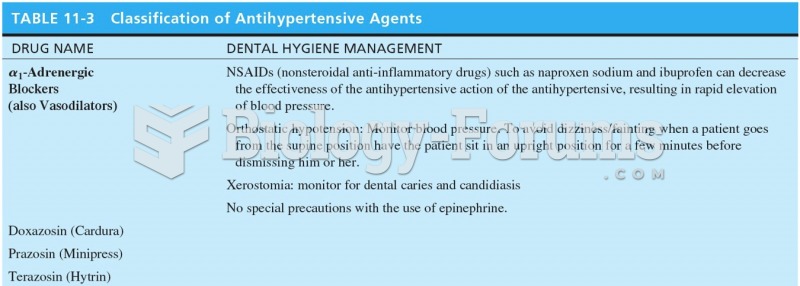|
|
|
Sperm cells are so tiny that 400 to 500 million (400,000,000–500,000,000) of them fit onto 1 tsp.
The most destructive flu epidemic of all times in recorded history occurred in 1918, with approximately 20 million deaths worldwide.
Though the United States has largely rejected the metric system, it is used for currency, as in 100 pennies = 1 dollar. Previously, the British currency system was used, with measurements such as 12 pence to the shilling, and 20 shillings to the pound.
During the twentieth century, a variant of the metric system was used in Russia and France in which the base unit of mass was the tonne. Instead of kilograms, this system used millitonnes (mt).
Complications of influenza include: bacterial pneumonia, ear and sinus infections, dehydration, and worsening of chronic conditions such as asthma, congestive heart failure, or diabetes.
 Synaptic transmission. (a) Action potential reaches synapse; (b) neurotransmitter released synaptic ...
Synaptic transmission. (a) Action potential reaches synapse; (b) neurotransmitter released synaptic ...
 Apply circular friction to the left side of the neck along cervical muscles with the fingertips of ...
Apply circular friction to the left side of the neck along cervical muscles with the fingertips of ...





